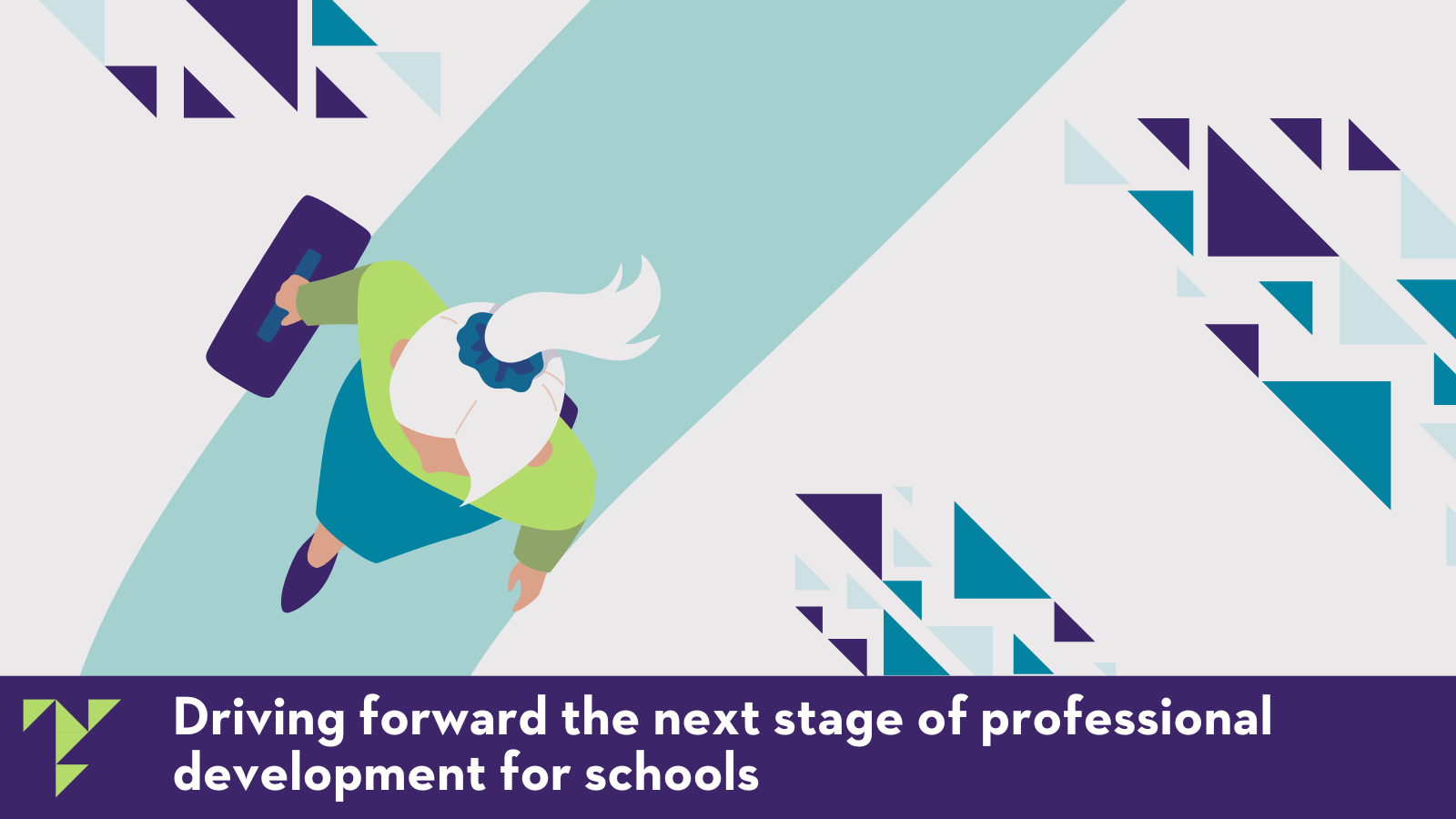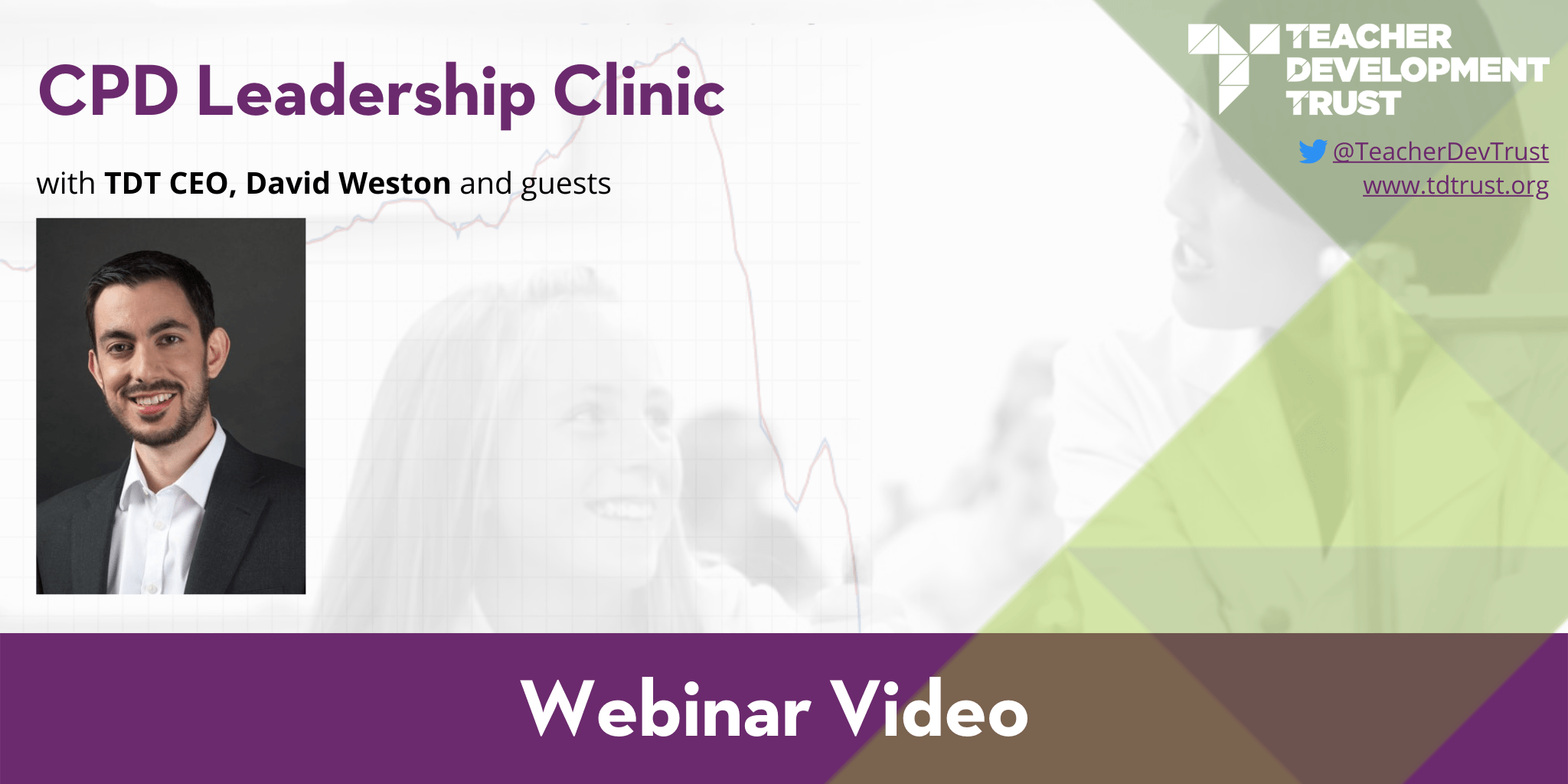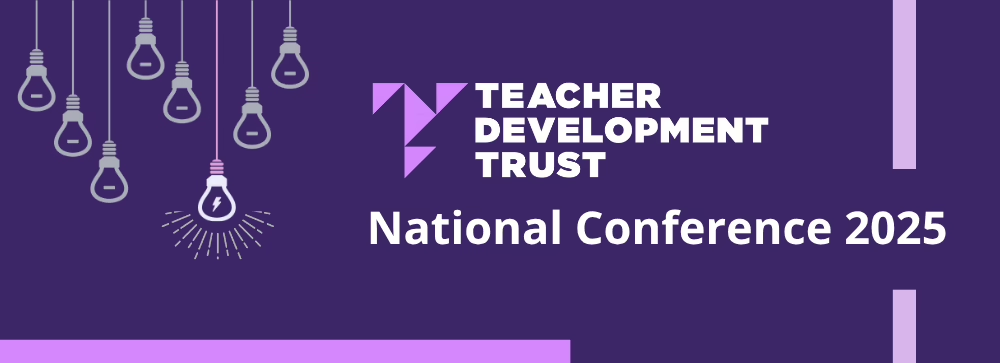The following is a speech from Teacher Development Trust’s CEO, Gareth Conyard, opening the inaugural David Monis-Weston lecture (sponsored by Mosaic by Penrose Education).
This invite-only event for the education sector occurred on Wednesday 30th April 2025 and included a lecture by David Monis-Weston on the use of AI in Teacher Development. You can find a recording of this in our Free CPD Leadership Hub.
The one thing I hope I don’t need to explain is the importance of investing in CPD.
Teacher Development Trust (TDT) aims to help leaders build stronger schools through effective professional development, and everybody in this room understands the transformational power that well-chosen professional development can have on all working in education, and of course ultimately on outcomes for children and young people.
It is heartening to see people in this room from across the professional development landscape – academics and researchers, policy makers and government officials, CPD delivery organisations and influential voices, and , of course, those directly responsible for supporting effective professional development across their schools and trusts.
That range of representation here is testament to the collective commitment to supporting more and better professional development in the school system.
It feels like we are coming together at an inflection point. As a sector, we have much to be proud of over the last decade and more. But circumstances are shifting, and we must respond and not assume that the actions that have sustained progress hitherto will continue to work. This doesn’t mean abandoning progress, but it does mean adapting to change.
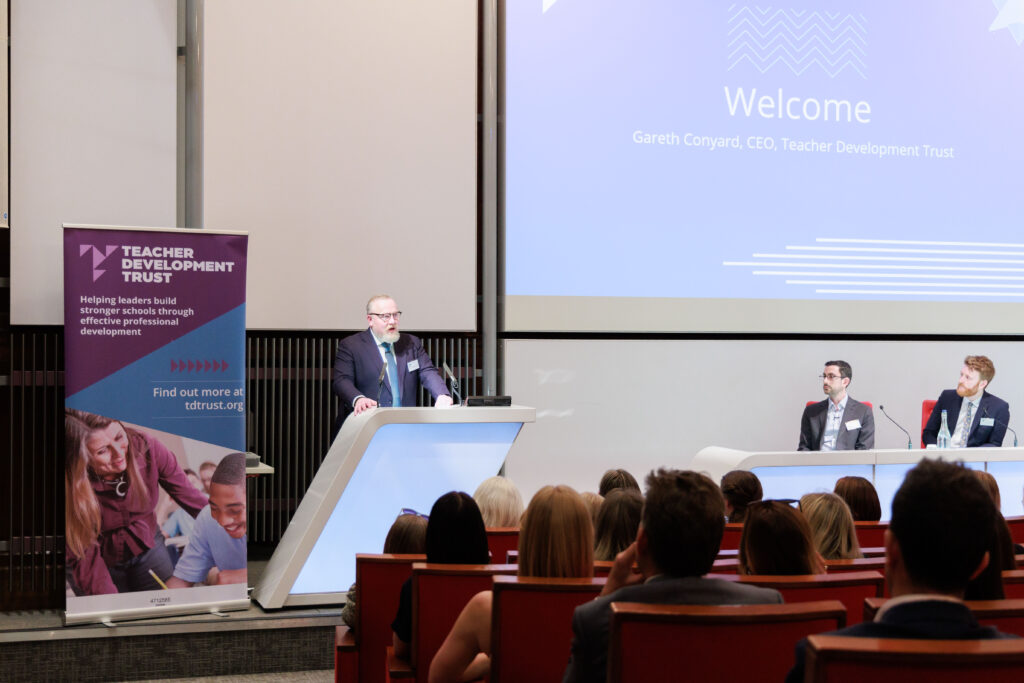
The Last 10 Years
We are able to build on some real strengths. In the story of the last decade or so, one theme stands out: the primacy of evidence.
In part as a response to the way ineffective fads infected teacher practice, we have all collectively been involved in a systematic attempt to improve the evidence base on professional development. I say systematic because it includes the creation and integration of new organisations, such as the Education Endowment Foundation, with a mission to act as the guardians of evidence, as well as the government-led approach to create the new ‘golden thread’ of professional development based on a consistent evidence base.
Such evidence is critical. At TDT, our first organisational value is to strive to be ‘smart’ – we want to make sure that everything we do, every product we develop, every course we deliver, is rooted as firmly as possible in the evidence of what works.
Where Evidence Meets Reality
But even the best evidence only takes us so far. It is only when evidence is translated into practice – when it actually changes the way a teacher behaves in the classroom, or the decisions made by a school leader – that it has any traction.
That is why, for our second value, we talk about having ‘heart’. By this, we mean understanding that teaching is a people-led endeavour and so we always have to respect the needs articulated by teachers and school leaders.
We all need to meet them where they are to maximise the impact of research and not let the pursuit of ever purer evidence become a fetish that divorces us from the realities of working in schools.
A good example of this is our own research on the importance of working conditions in schools. In the Culture of Improvement report, published in 2021 and written by David, along with Bethan Hindley and Maria Cunningham, we explore the importance of establishing the right circumstances to ensure the success of professional development – in particular the critical role of involving teachers in the creation of professional development plans, of working with mutual trust and respect, and of building a sense of shared mission.
Without these circumstances being right, the very best evidenced professional development will struggle to prove successful. It is why a ‘cut-and-paste’ approach will never be sufficient.
In 2020, the NFER published a piece of research on the connection between teacher agency and job satisfaction – linked strongly to retention. We got involved because that research found that teachers valued agency most when selecting their professional development. That shouldn’t be a surprise – we all want to shape the choices that affect our career progression.
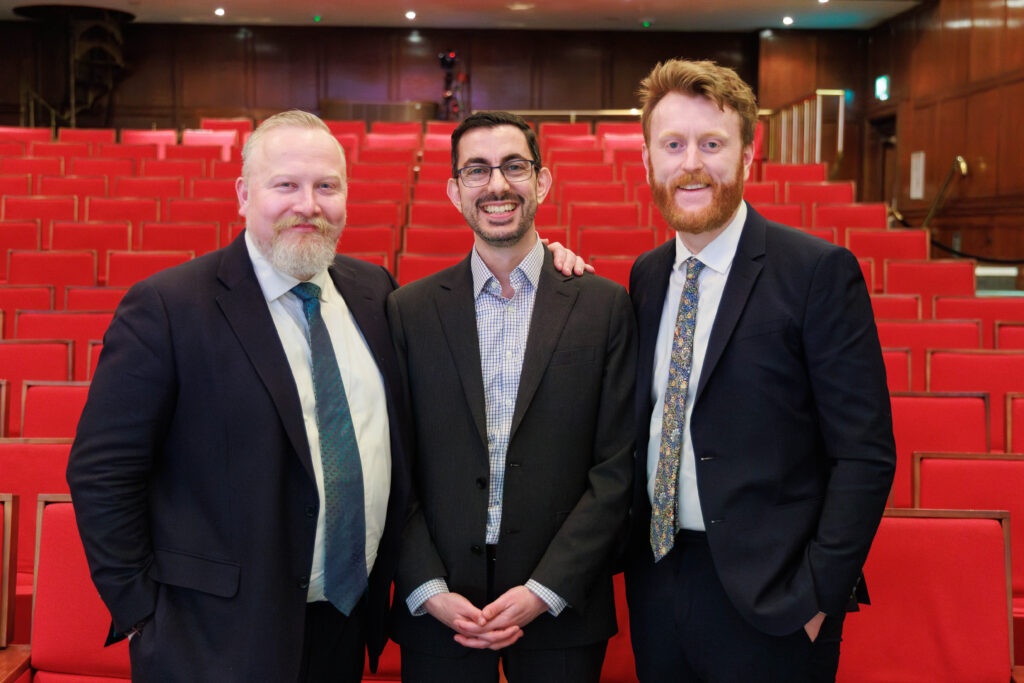
So, as we look towards the future, we need to ensure that we balance what the evidence tells us with what teachers and school leaders are telling us. Tonight’s lecture topic – AI – is a good example of why.
There is no way we can conceivably expect the evidence base – especially the most robust evidence, with randomised control trials, replicated multiple times – to keep pace with the advancing possibilities and applications of AI. We need to be more nimble, more responsive.
What has been the point of it all?
I’ve talked about the last decade or so, but I think there is a case to look even further back in time in terms of teacher professional development.
Let’s go all the way back to the famous Ruskin Speech, delivered by then Prime Minister Jim Callagham in 1976, a speech widely regarded as the starting point for greater government intervention in education.
It spawned the 1977 Green Paper – Education in Schools – by then Secretary of State for Education, Shirley Williams, which included suggestions we would find familiar today including introducing a stronger induction phase, improving INSET, and measures to address the lack of physics teachers.
Since that point, teaching has become a graduate-only profession and we have seen countless examples of reforms to improve Initial Teacher Education, INSET provision, subject specific training, sharing best practice, and most recently of course the ‘golden thread’ of ITT to ECF to NPQs.
The question we should ask ourselves is: “What was the point?”
Was it to help improve the quality of teaching and teachers so they could better serve children and young people, and become a more evidence-driven profession? Or was it to create a permanent dependency on government to fund new initiatives and dictate practice?
Successive governments have, of course, grounded policy in the language of support for the teaching profession, but we seem to have arrived at a place where we are more reliant than ever on centralised frameworks and decisions to effect change.
At a time when we should be able to celebrate the fact that reforms over many decades have given us the strongest teaching profession ever, we are instead too often focused on constraining choices and limiting curiosity. Despite all the work over many decades, are we any closer to honestly trusting the profession?
Given what we know about the importance of establishing the right cultures in schools, of mutual trust and respect, and in giving teachers and school leaders agency over their career development, maintaining too tight a grip carries significant risks. At worst, it reinforces negative portrayals of teaching as a career that leaves people feeling demotivated and powerless.
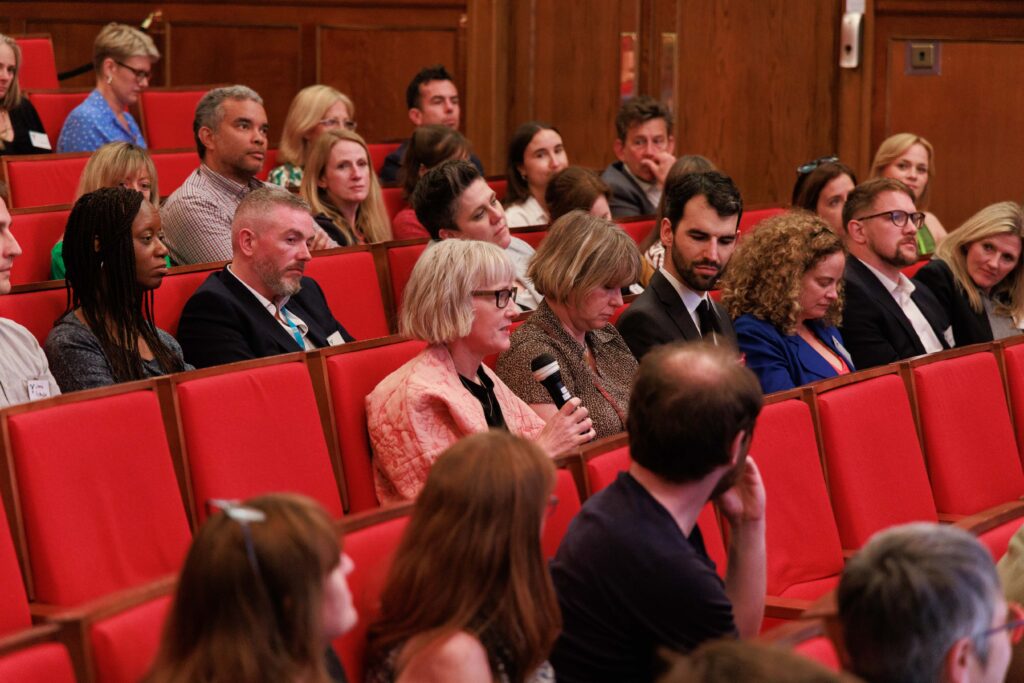
How to move forward
So, what do we do? We can be confident in our past successes, and we can build on them, but we need to approach the next stage differently. We need to show more trust in the achievements of past decades and the professionalism of teachers and school leaders.
I know there is a commitment to an entitlement and, to be clear, we would support such an entitlement if well-framed and delivered. We will always make the case for the importance of investing in professional development but we need to be pragmatic about what is likely, given the wider financial circumstances, not just for education but for the whole country.
Defence and trade spending are likely to be higher priorities than before, and even within education, the government has to respond to other pressing issues as well – around SEND, teacher pay, HE, early years, and children’s social care.
So this is a moment when the teaching profession – and I mean that in the widest sense to include all here today – has the opportunity to take on more responsibility. A commitment to professional development should never be dependent on the economic cycle or the political weather, held hostage by the impact of Trump’s tariff policies or Putin’s wanton aggression.
CPD is part of what it means to be a teaching professional, in all circumstances. We can commit to work together to build a de facto entitlement, not because government is writing another cheque, but because it is the right thing to do anyway, and because we can be confident that the profession has the maturity and determination to take ownership of its own progress.
There is much that can be done to improve professional development without looking for more cash down the back of an already well-rummaged Treasury sofa. The combination of investments already being made by the government – on the ‘golden thread’, on subject hubs, on INSET, and by schools directly – quickly adds up to over half a billion each year.
We should be curious about how to coordinate that better, how to help schools spend that better. Indeed, that is why TDT has launched our new CPD Leadership Hub this week, specifically intended to help school leaders build stronger schools through effective professional development.
We are also already working on a detailed report on the wider picture of CPD which will be published in October and which will – amongst other things – look at the breakdown of spending.
We should be curious. This takes me to our third and I think most important organisational value: humility. At TDT, we want to make sure that we are always listening and learning, are open to new evidence and new ideas, and avoid becoming the blockers to further progress because we can’t move beyond our past thinking.
Tonight’s lecture is a chance for us all to do just that. We are lucky to be able to hear from an innovative and challenging thinker.
You might agree with what David says and use it to change your approach. You might think he is speaking so much guff and be itching to publish something to the contrary. I would be delighted with either.
We want to use these annual lectures to push boundaries, to challenge thinking, and to make sure that we are all able to retain our curiosity and use it to drive forward the next stage of professional development for schools.
One firmly based in the evidence, but responsive to what teachers and school leaders say they need. One that is confident but humble. And one that is led by the profession, for the profession, to ensure it is effective and impactful.
